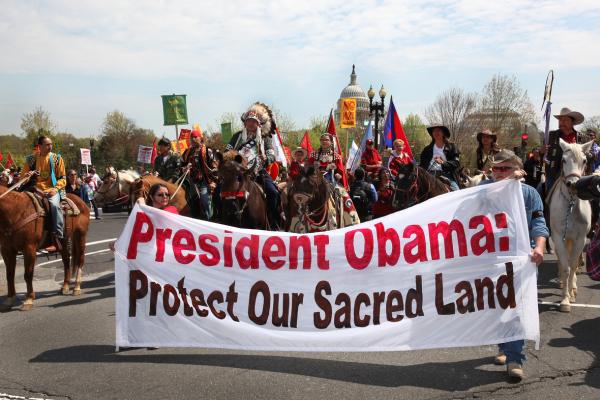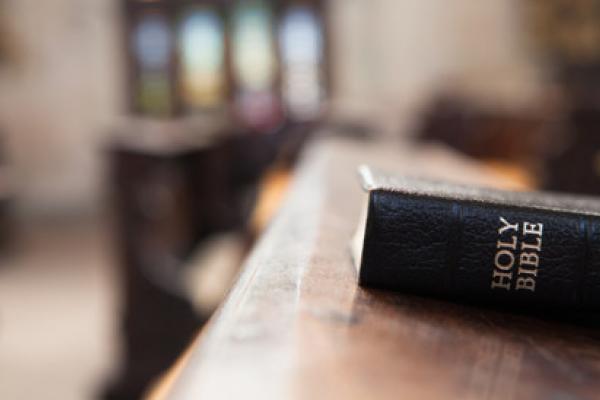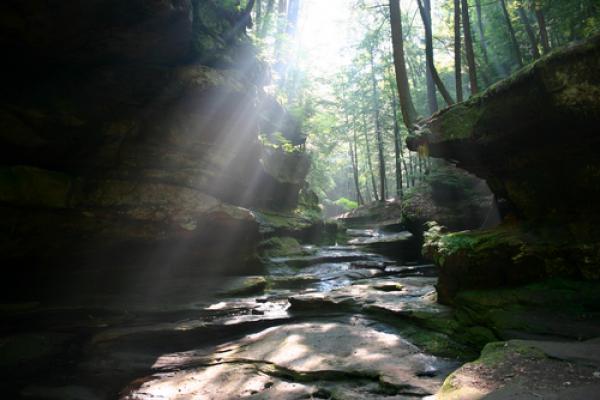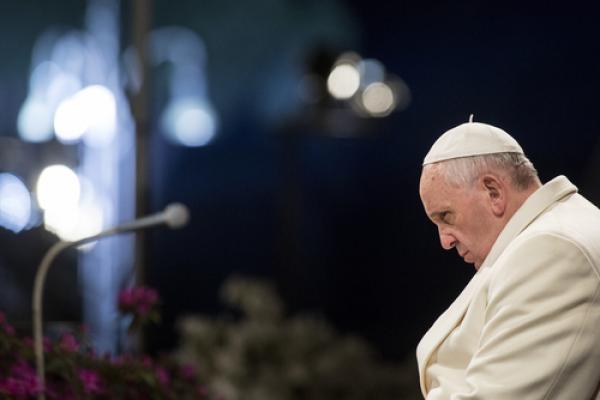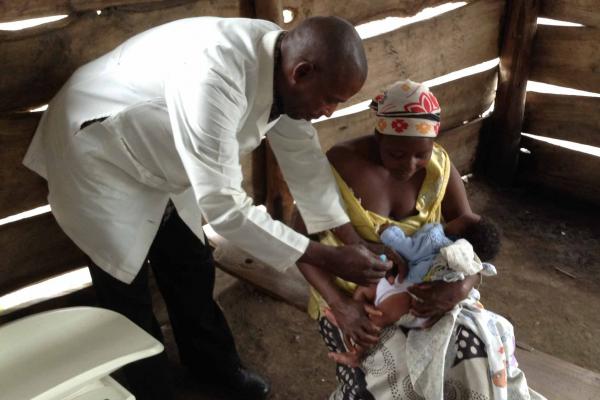Editor's Note: Today’s #EarthWeek action: Join us for a prayer conference call at 2:30 pm Eastern Time as we hear from the evangelicals standing against the Keystone XL pipeline, and pray a blessing over them and their work. Click here to RSVP.
Maybe I’m a near-sighted, Bible-thumping holy roller, but I can’t see angel wings flapping on oil executives. No doubt some are community pillars. They’re Little League umpires, tithers, and PTA volunteers. They’ve got lovely houses and manicured lawns.
But they’re also flawed like the rest of us, and their professional bias screens out the obvious: The proposed Keystone XL Oil Pipeline would do little good and could wreak enormous harm. I’m compelled to halt my timid thy-will-be-done prayers and join a band of evangelicals boldly pleading for the permit’s denial. We’ve even launched a Facebook page, called “Pray No KXL.”
The Bible encourages the “repression of women,” and it’s silent on such fraught topics as war or slavery.
The American Bible Society’s annual “State of the Bible” survey reveals “the people of the book are not people of this book,” said Geof Morin, chief communication officer for the society.
“We know 88 percent of people say they have a Bible. They think: ‘I have a Bible. I have had one for a long time. I must know what’s in it.’ But people overestimate their knowledge,” Morin said.
Director Darren Aronofsky says he is not religious, and that his Russell Crowe blockbuster movie “Noah” is the “least-biblical biblical film ever made.”
But the strong environmental message of his film — which makes Noah a hero as a God-inspired steward of the earth — firmly roots itself in Scripture, Aronofsky told an audience of religious environmentalists on Wednesday. Many of them hope the message of the movie, which has grossed more than $300 million since its release on March 28, spurs more people of faith to work against climate change.
In “Noah,” Aronofsky said, he hoped to capture the beauty of creation, and to dramatize God’s dramatic decision to destroy it because of human sin. Noah, he said, “is saving the animals. He is not looking for innocent [human] babies. It’s about saving the animals.”
The seasonal items aisle in the grocery store is a work in progress. Stuffed bunnies are being replaced by garden gnomes. Cans of sunscreen will soon inhabit the shelves that displayed egg-coloring kits a few days ago.
Easter is over.
Well, not completely. Boxes of purple and yellow Peeps are stacked on clearance tables in the middle of the aisle. Chocolate rabbits are available for half-price.
And tombs are being emptied.
There’s an old hymn that many Christians have sung for nearly a century. “How Great Thou Art” celebrates the glory of God while considering, “all the works thy hands have made.” It reminds me of the psalm that reads, “The heavens are telling the glory of God; and the firmament proclaims his handiwork. Day to day pours forth speech, and night to night declares knowledge.”
Creation, therefore, is a witness to the wonder and awe of God. Although humanity has been given the honor of bearing God’s image, the earth shows God’s creativity and ingenuity. Over the years I’ve heard so many stories of people finding faith in God, not because of brilliant arguments, but because they are in awe of the complexity and glory of the created world.
But creation is not just a unique witness to God’s glory — it is, as the apostle Paul wrote, “groaning” waiting also for its redemption. This past Easter Sunday, Christians all over the world sang joyful songs of resurrection and renewal. Many of these songs proclaim freedom for all of creation — not just for humanity. One church I know of even sang “Joy to the World,” in celebration that the power of Christ’s resurrection extends “far as the curse is found.”
It’s hard to face, but humanity — image bearers of God — is largely responsible for destroying much of this great witness to God’s glory.
Time magazine has released its annual 100 Most Influential people list, and, to no one's surprise, Pope Francis is featured. What may be surprising is who the magazine chose to write about the pontiff — President Barack Obama. The president points out Pope Francis' dedication to the poor and the "least of these."
In the blurb for Time, Obama says the pope's: "message of love and inclusion, his regard for 'the least of these,' distills the essence of Jesus’ teachings and is a tonic for a cynical age. May we heed his humble example."
Obama recently met with Pope Francis, saying at the Easter Prayer Breakfast:
So I had a wonderful conversation with Pope Francis, mostly about the imperatives of addressing poverty and inequality. And I invited him to come to the United States, and I sincerely hope he will.
April 24-30 is World Immunization Week. While it is estimated that vaccinations save the lives of 2.5 million children every year, another 1.5 million children die each year from diseases that can be prevented with vaccines. Christian organizations are working to change this and help the global health community reach the 20 percent of children worldwide who miss out on life-saving vaccines.
Sylvia, a mother of three in Kasese, Uganda says she was aware of vaccines to prevent disease, but did not understand their importance or the fact that children need a number of vaccinations throughout the first five years of life. “All I understood was that there are killer diseases we should immunize our children against,” explained Sylvia. “I took my first and second child for vaccines for only the first nine months of life. I didn’t learn my children would still be at risk of catching diseases if they were not immunized for five full years until an educator from the Bishop Masereka Christian Foundation (BMCF) came to my village.”
Reaching parents with information about vaccines and vaccinating children is critical to child survival. Immunization is one of the main drivers behind the tremendous decline in child deaths the world has experienced in recent decades.
